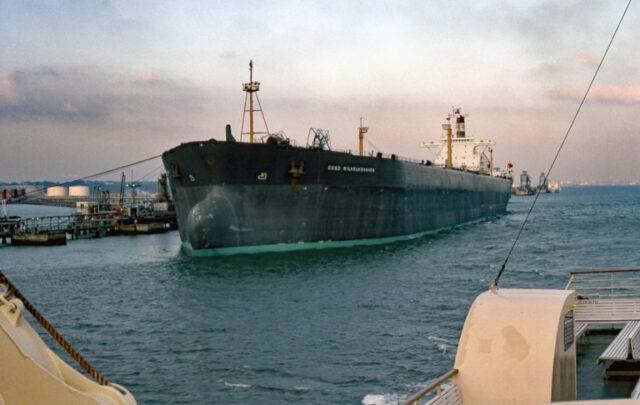If you want to understand the global economy and feel the pulse of capitalism in the early 21st century, look no further than the $19 billion bid by the China National Oil Operating Company – Cnooc – for Unocal of California. Add a large measure of geopolitical tension, and you have probably the single most important corporate event of the young millennium.
The offer – which Cnooc’s president Fu Chengyu and his team have been considering ever since rival US oil giant Chevron agreed a takeover of Unocal for $16.5 billion – encapsulates the growing business confidence of China, the land of totalitarian capitalism. Its dynamic economy needs raw materials if it is to continue the eye-watering growth rates of the past few years. Chinese demand has already helped push up global commodity prices, including oil. Now Beijing wants to own the means of production, too. A middle-ranking American oil company will do nicely.
American nerves are already frazzled by the rate at which China is catching it up as the world’s biggest economic power. There have been takeovers by Chinese groups of such pillars of US capitalism as IBM’s PC business and Hoover. These are serious brands – but not in the same league as an oil company with real, strategically significant assets. West coast senators are already beginning to lobby the President, who must be worried by the prospect of Chinese ownership of a quintessentially American business. (When Japan bought up a chunk of USA Inc in the Eighties, it was regarded as a corporate Pearl Harbour.) Throw in the spat over Chinese textile exports to the US and Europe, which will be the centre of bitter recriminations at the next meeting of the World Trade Organisation, and the import of the Cnooc bid looms even larger.
Americans will not admit it, but they are almost impotent in the face of Chinese financial firepower. The Cnooc bid is in cash, backed by the near-limitless resources of the Chinese state, and in a country like the US, which has always lived by the epigram ‘cash is king’, it looks hard to beat. Chevron would certainly struggle to match it. That is why the political lobby is already rolling, with much muttering about the ‘national security’ implications of the proposed deal.
(Notice, however, that such patriotic concerns do not extend to Wall Street. Goldman Sachs and JP Morgan, perhaps the finest names on the Street of Dreams, are advising the Chinese. Morgan Stanley is waving the flag for Unocal, but its fate will probably be decided by the mainly American hedge funds that dominate its share register. The business of America, it seems, is not business, but finance.)
And – to seal American paranoia – China is also a major holder of US debt. Put simply, the US is in hock to the Chinese to such an extent that if all the bills were called in at once, Uncle Sam would be bust. It’s not in China’s interests to destabilise the world economy at the moment, but circumstances change. Beijing might just like to keep that card – a financial nuclear option – up its sleeve for some future geopolitical crisis.
Corporate America will climb a traumatic learning curve over this bid, and be forced to confront the growing reality of Chinese economic power. For business people elsewhere, the lesson is far simpler: learn Mandarin – now.





